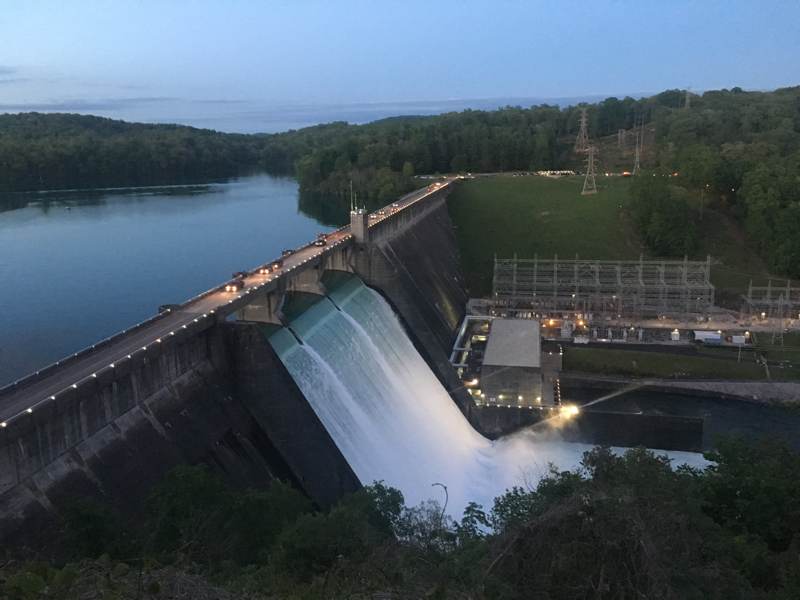Rumblings of protest begin at Norris Dam State Park meeting

Norris Dam
Around a dozen people showed up to a public meeting set up by the park to discuss a new business management plan.
While Moore and Ranger Supervisor Mark Morgan discussed the impressive upgrades that have taken place over the last several years, what everyone there came to discuss was the potential Rocky Top development.
Plans are in the works — but not set in stone — to build a resort on the Campbell County side of the park. It’s a joint effort between Campbell County officials, including Mayor E.L. Morton, and a combination of local and out-of-state businessmen.
The plan has gone as far as the governor’s office, and the outcome of the gubernatorial election will partly decide whether it moves forward or not.
As first reported in LaFollette Press in January, the development is intended to be “for the greater good,” according to Anderson County District 4 Commissioner Tim Isbel.
Those involved cite increased tax revenue, which pours money into local government and schools.
But, according to those in attendance at last Friday’s meeting, it would set a precedent of allowing public land to be sold out for private development.
A land swap would take place, meaning that an equal amount of acreage in Campbell County would be swapped out for the acreage dedicated to the resort. But, according to Billy Minser, a retired University of Tennessee wildlife management professor, there’s no telling where that land would be.
“I know these things can go on a comment card,” Minser said, “but I can’t leave here without speaking on behalf of all those people who love this park. Until we fix the way that the state park system is governed, we’re gonna have these political and business clashes. We’ve got through this three times in 13 years. We’ve got friends in politics too, but we’re tired of fighting. We always will, but we’re tired.”
Minser is a member of the Friends of Norris Dam State Park, and most notable fought against a development that was trying to come to the park 11 years ago.
It was called the Lighthouse Project, and the community protested the project big-time. The Eastern Band of Cherokee Indians and Sierra Club were two high profile groups that joined the Friends of Norris Dam State Park in protesting the development.
According to Russ Rickard, who attended the meeting on Friday and the protest 11 years ago, they came en masse to a public hearing, all revealing at once a shirt that read, “State park not for sale.”
The local astronomy club turned out as well, concerned that the lighting at the development would sully the dark skies that make the park so appealing to amateur astronomers.
Minser said that the state park system of governance should include input from the people the parks serve.
“We want to be involved in the professional side of these discussions,” he said. “We need to be part of the process. There’s no way for us to officially have an impact, and we want to see this bull crap stopped.”
He recommended passing some kind of legislation that allows the Tennessee Department of Environment and Conservation to say to potential developers, “Thanks for your offer but we can’t do that; go away.”
Rickard added to what Minser had to say.
“These politicians and commercial developers don’t even look at us,” he said. “The first one went to TDEC and we beat it; then the second time, they almost got to TVA and we stopped that by a couple of hours. I know [Randy] Boyd was contacted, [Republican nominee Bill] Lee was contacted; these guys are going to the top level. If we don’t have a statement on who we are and that it’s ours, we’re going to lose.”
Moore and Morgan assured the citizens that the park’s administration is aware of what’s going on.
“It’s something that has recently come up,” said Moore. “The state of Tennessee looks at opportunities, but they’re also very proud of the property they have and the protection and preservation of their resources.”
In the end, everyone wrote their thoughts on the comment cards, which were sent to Nashville the following day.

